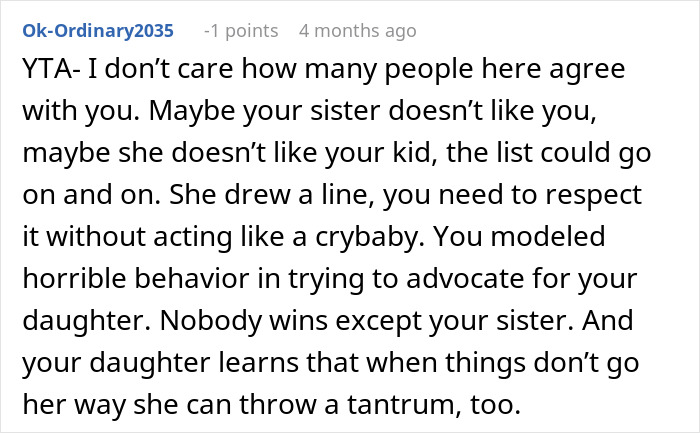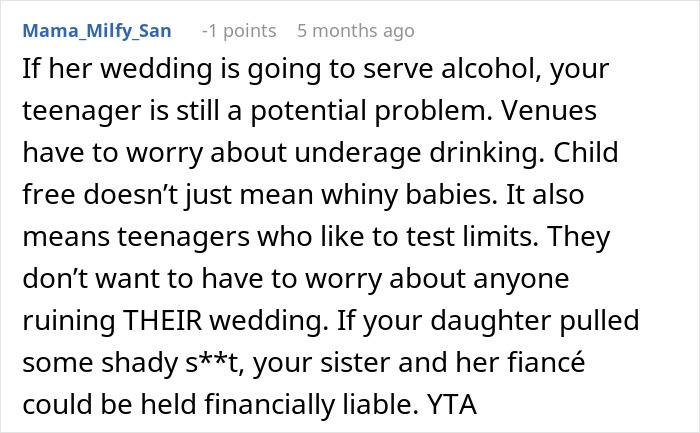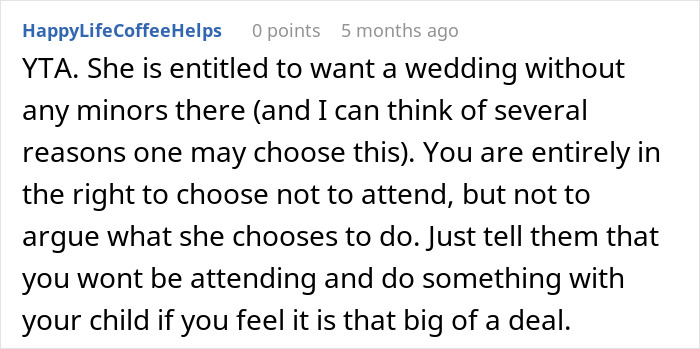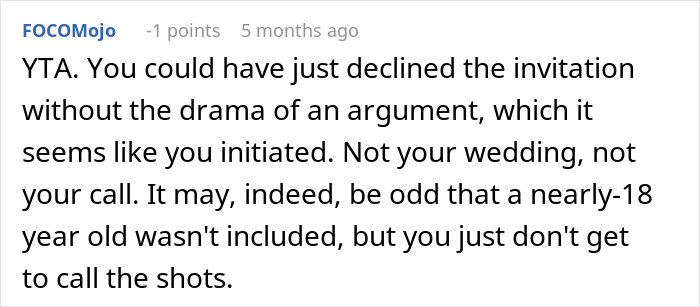Planning the guest list for a small, intimate wedding can be tricky. Some people close to the couple may not be invited. In some cases, like in the story you’re about to read, this may include a sibling’s child.
Reddit user Eastern-Second-2528 has a sister who is about to get married. The problem arose when her teenage daughter was excluded from the guest list. A heated argument ensued, and the author got called out for “throwing a tantrum.”
The stressful situation made her vent her frustrations on the AITA subreddit for clarity.
Pre-wedding family drama can be a massive headache to deal with

Image credits: Pavel Danilyuk / Pexels (not the actual photo)
Guest list issues caused a rift between a woman and her soon-to-be-married sister
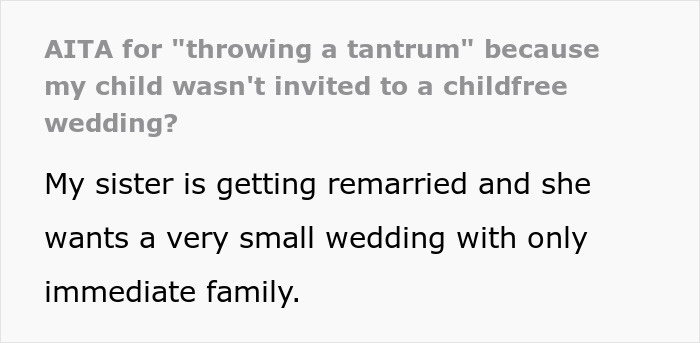
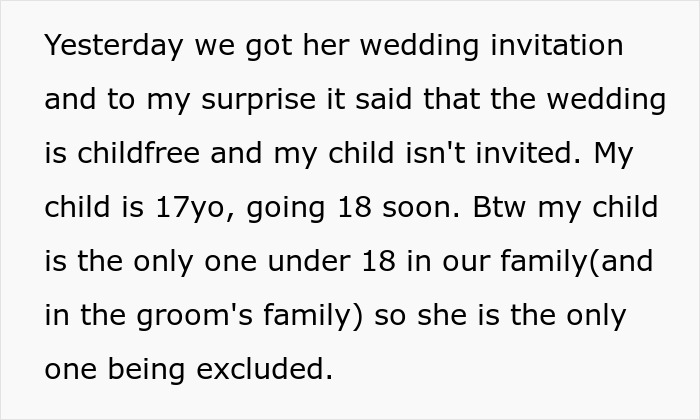

Image credits: Alex Green / Pexels (not the actual photo)
A heated argument ensued, leading to some name-calling

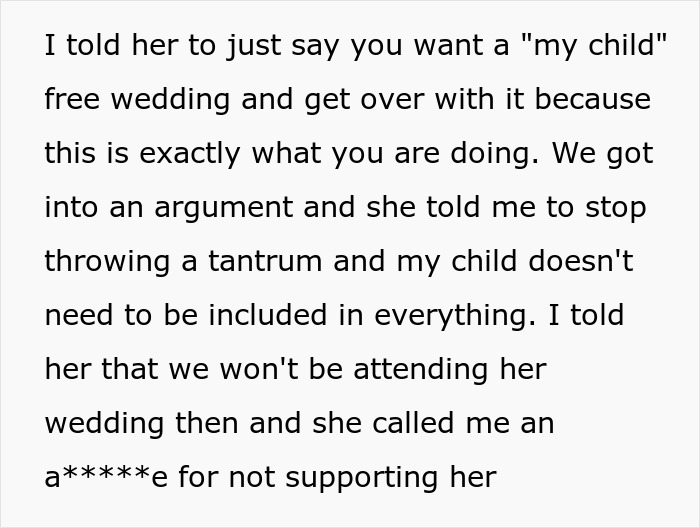
Image credits: Eastern-Second-2528

Image credits: Liza Summer / Pexels (not the actual photo)
The desire for control is one of the common reasons for family drama
The two women in the story argued about including the teenage girl on the wedding guest list. Neither of them was willing to back down, likely because they wanted to control the situation and get their way.
According to licensed marriage and family therapist Sarah Epstein, it is one of the common causes of pre-wedding family drama. Her article published in Psychology Today states that logic gets thrown out the window during such tense moments.
Epstein brought up another possible factor: the fear of being left out. In this case, the author didn’t want her daughter to miss out on a significant family event.

Image credits: Emma Bauso / Pexels (not the actual photo)
A successful ceremony is possible even if the people in conflict are present
A peaceful, drama-free ceremony is achievable, even with the warring family members around. According to experts like The Wedding Academy founder Kylie Carlson, it’s about maintaining distance.
In an interview with Shondaland, she advises speaking with wedding planners for appropriate seat assignments and with the photographers to ensure the people at odds aren’t in the same shot.
Overall, Carlson emphasizes the importance of communication. She encourages one-on-one dialogues with certain family members about behavior expectations if needed.
“These aren’t easy conversations to have, but taking this step means you’re not leaving things to chance,” she said.
The bride-to-be seemed set on her decision to exclude her niece, which likely didn’t sway the author to change her mind about not attending. Unless they were willing to reason, any conversation would’ve been futile.
What do you think, dear readers? Who was in the wrong here?
The author answered some questions to provide more information
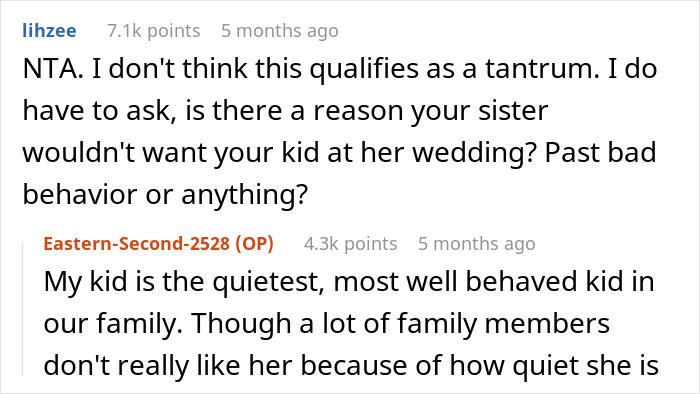

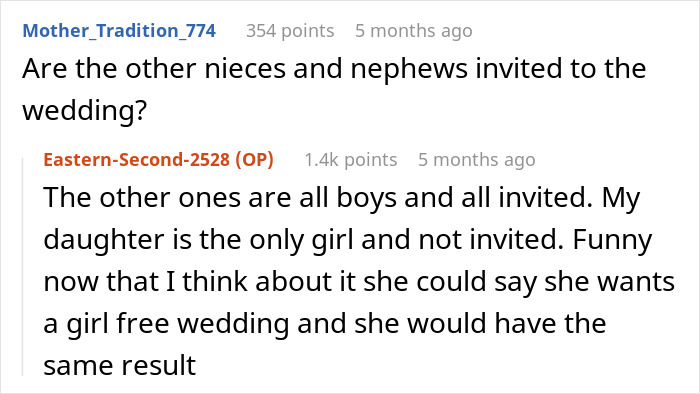
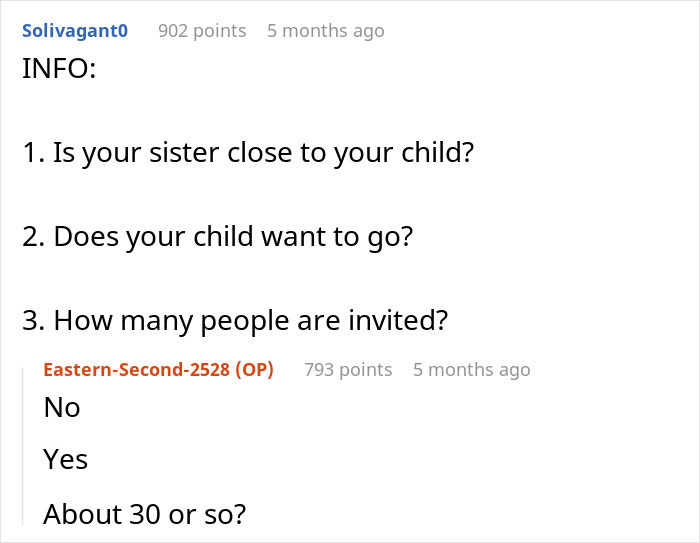
People in the comments were divided, but most of them sided with her
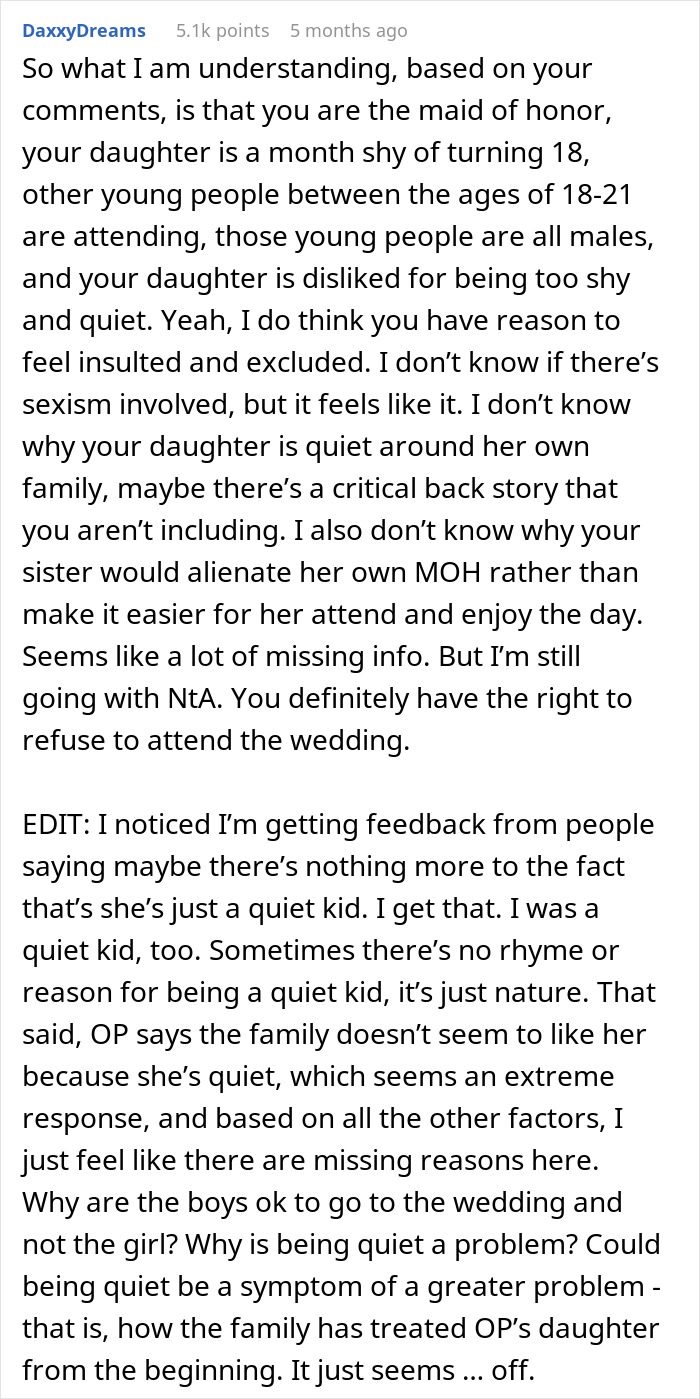

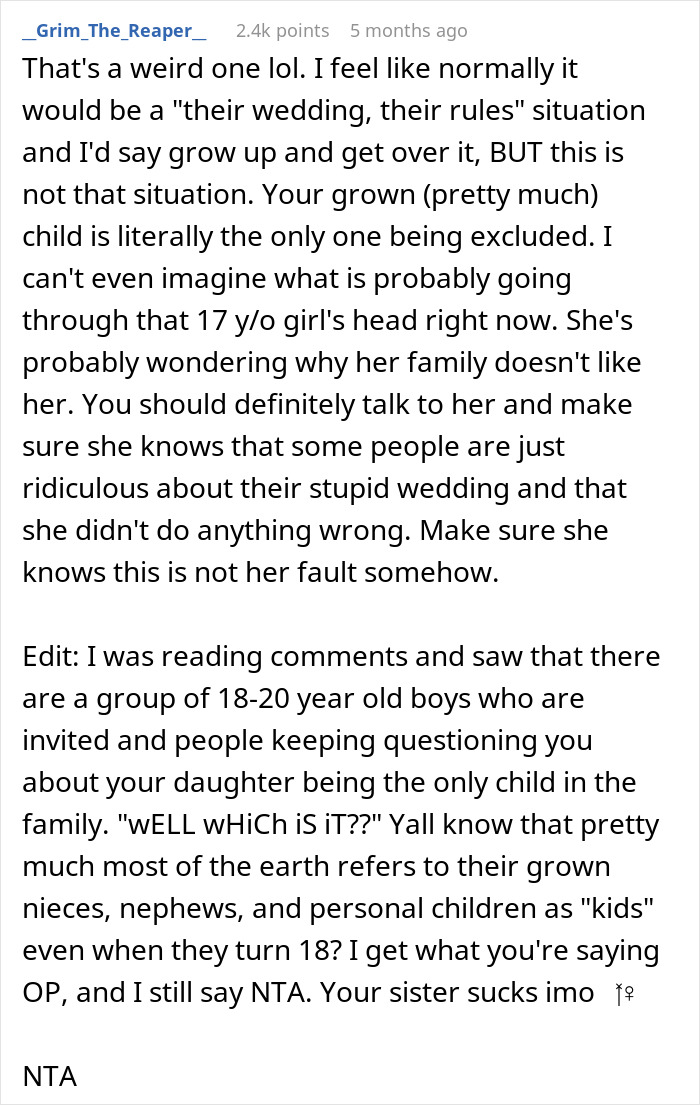
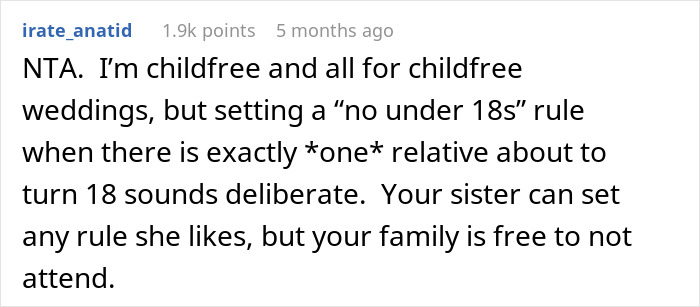

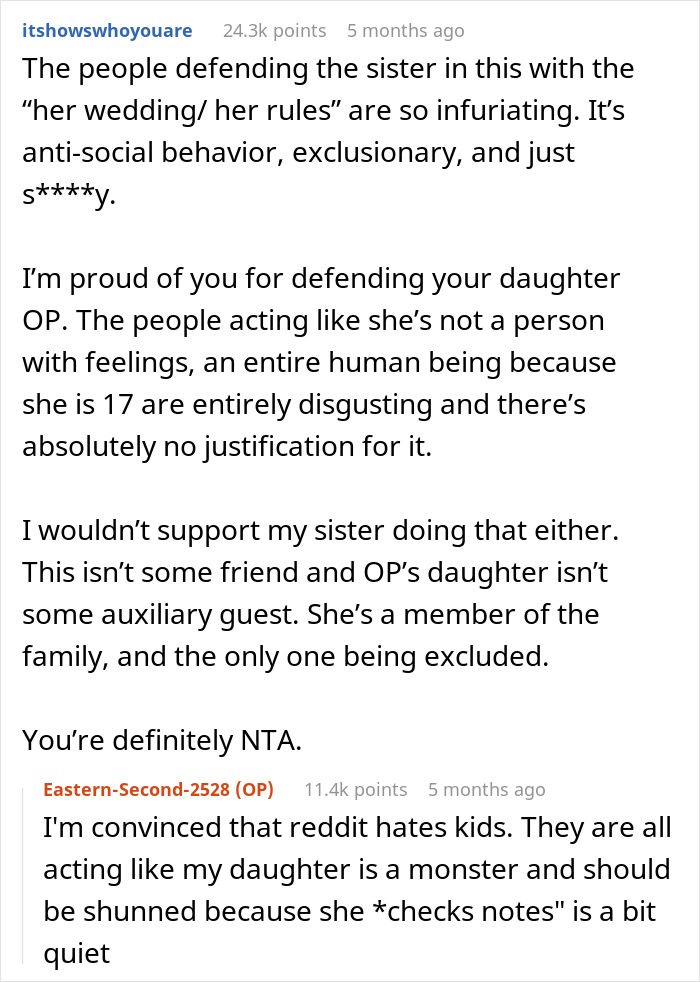
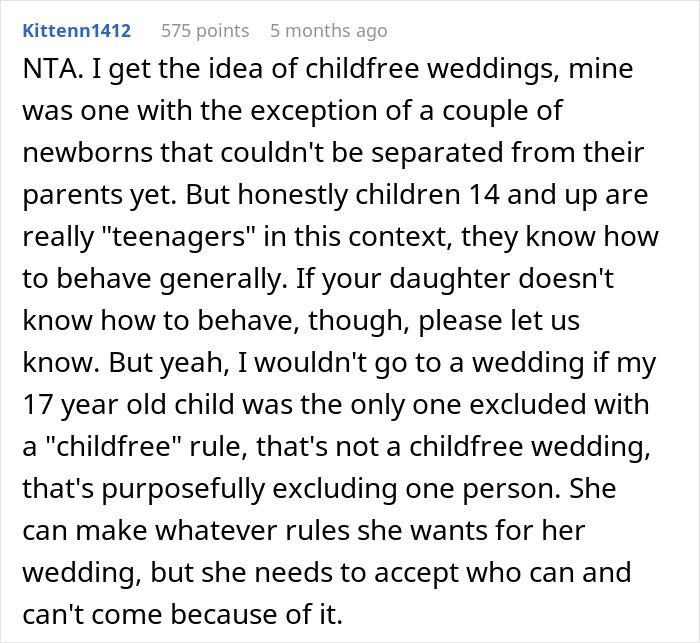
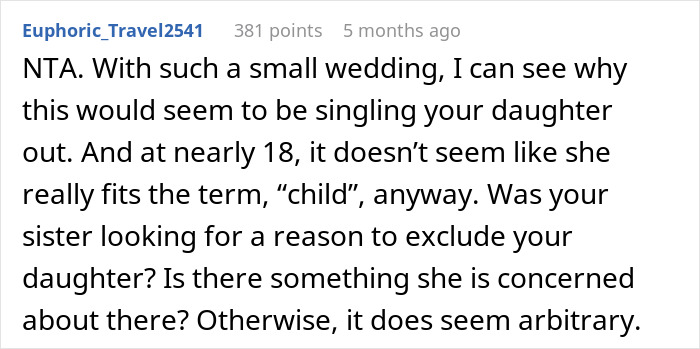
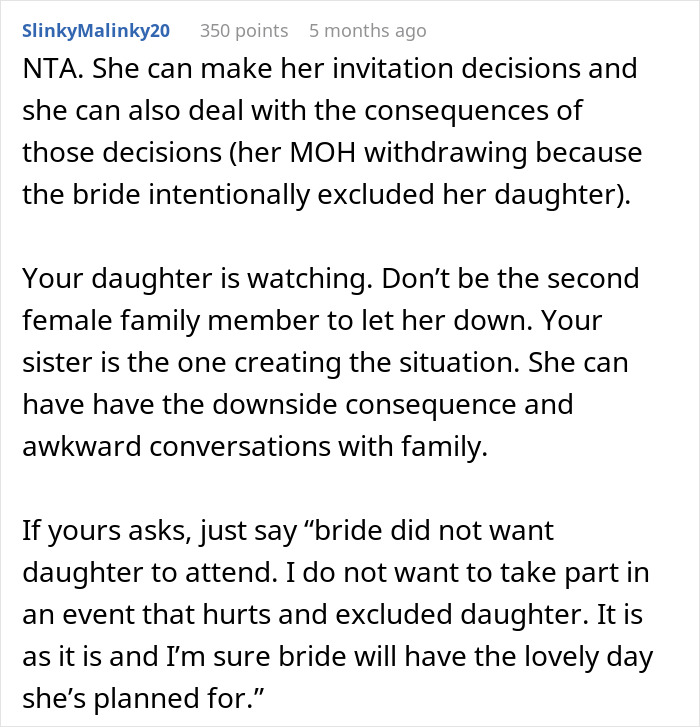

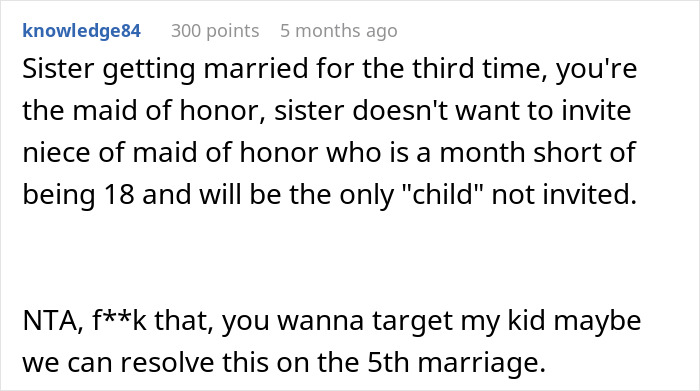
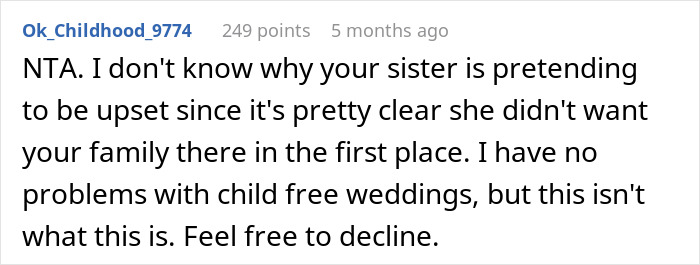


However, there were a few who blamed her
